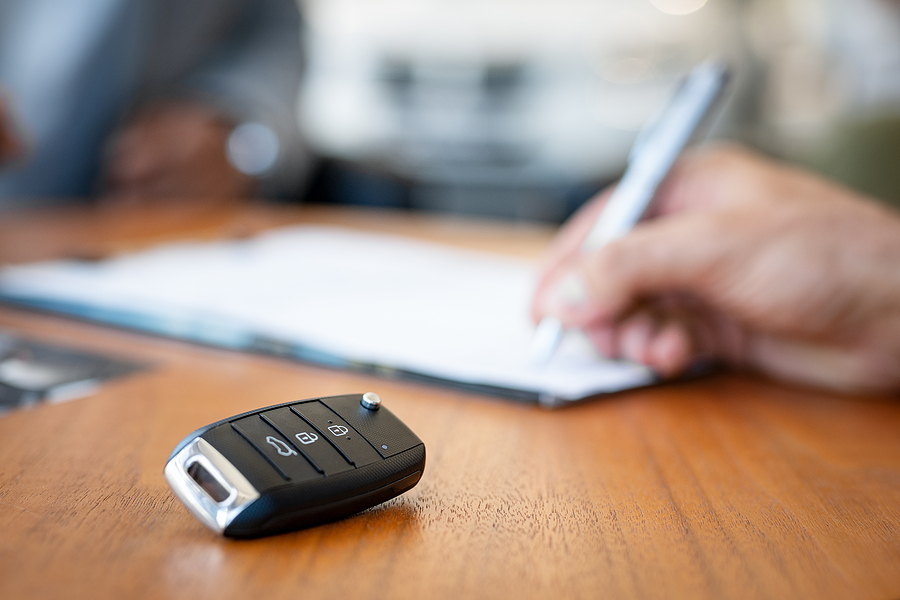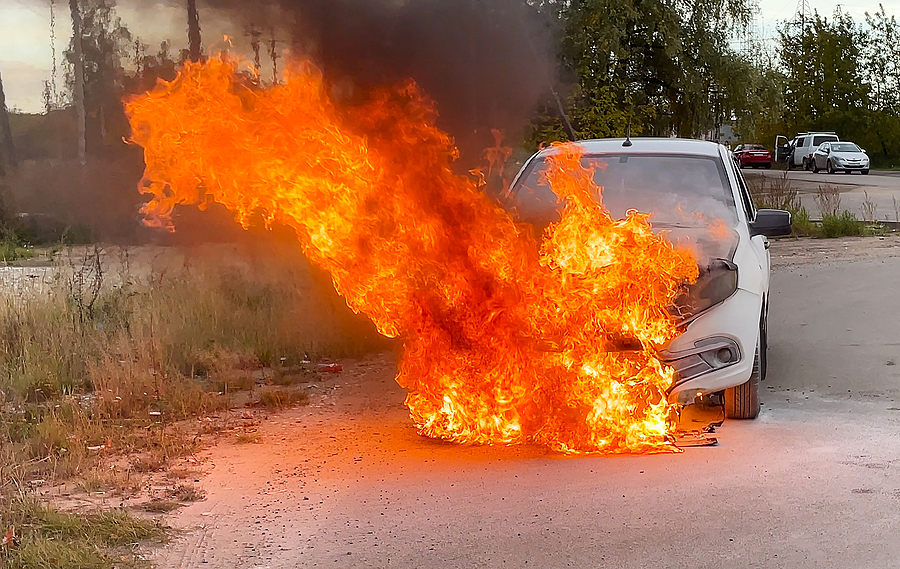An old, non-functional car sitting in your driveway can be more than just an eyesore; it’s a potential source of cash. The Indiana auto salvage market provides an opportunity to dispose of your junk car responsibly while making some money. However, the process involves legal paperwork, specifically a car title transfer, which can feel complicated.
This guide will walk you through everything you need to know about transferring a car title for a junk car in Indiana. We’ll cover the state’s legal requirements, provide a step-by-step process, and help you avoid common pitfalls. By the end, you’ll understand how to properly handle your junk car’s proof of ownership and connect with reputable buyers.

Indiana Title Transfer Rules for Junk Cars
Before you can sell your junk car, it’s important to understand the legal framework governed by the Indiana Bureau of Motor Vehicles (BMV). Under Indiana Code Title 9, all vehicles must have a title to prove ownership. When you sell or scrap a car, this title must be legally transferred to the new owner, which in this case is often an auto salvage yard or a junk car buyer.
Properly transferring the title is not just a formality; it releases you from liability for the vehicle. If you fail to transfer the title, you could be held responsible for any future issues involving the car, including parking tickets or its use in illegal activities. The Indiana Administrative Code Title 140 further details the procedures for salvage titles and vehicle disposal, emphasizing the importance of accurate documentation.
How to Transfer Your Car Title When Scrapping
Transferring your car title is a straightforward process if you follow the correct steps. Here’s how to do it in Indiana.
Step 1: Locate Your Car Title
The first step is to find the original car title. This document is your official proof of ownership. Make sure the Vehicle Identification Number (VIN) on the title matches the VIN on your car. The VIN is typically located on the driver’s side dashboard or doorjamb.
Step 2: Complete the Title Assignment
On the back of the Indiana car title, you’ll find a section for “Assignment of Title by Owner.” You need to fill this out completely and accurately.
- Buyer’s Information: Write the full name and address of the buyer (the auto salvage yard or individual). Reputable junk car buyers will provide you with this information.
- Odometer Reading: Record the vehicle’s mileage. Even if the car is not operational, you must provide the last known reading.
- Sale Price: Enter the amount you sold the car for.
- Your Signature: Sign and print your name exactly as it appears on the front of the title. If the car is co-owned, both owners must sign.
Do not use white-out or cross out information, as this can void the title. If you make a mistake, you may need to apply for a duplicate car title.
Step 3: Provide a Bill of Sale
While not always legally required in Indiana for every private sale, creating a Bill of Sale is a smart move. This document serves as a receipt for both you and the buyer. It should include:
- The date of the sale
- The vehicle’s year, make, model, and VIN
- The sale price
- The names and signatures of both the buyer and seller
Step 4: Remove Your License Plates
Before the junk car buyer tows your vehicle away, remove your license plates. You can transfer these plates to another vehicle or return them to the BMV. Never let the buyer take the car with your plates on it.
Step 5: Notify the BMV
After the sale, it’s a good idea to keep a copy of the completed title and Bill of Sale for your records. Some states require sellers to notify them of the sale, but in Indiana, the responsibility falls on the buyer to apply for a new title in their name. However, having your own documentation protects you if any disputes arise.
Common Mistakes and Scams to Avoid
Selling a junk car should be a simple transaction, but unfortunately, some buyers may try to take advantage of sellers. Here are common mistakes and red flags to watch out for:
- Leaving the Title Blank: A buyer might ask you to sign the title but leave the buyer information section empty. This is known as “title jumping” and is illegal. It allows the buyer to resell the car without ever registering it in their name, potentially leaving you liable.
- Not Getting a Receipt: Always get a Bill of Sale or a receipt from the buyer. This is your proof that the vehicle is no longer yours.
- Last-Minute Price Haggling: Some tow truck drivers will try to offer you less money than the agreed-upon price when they arrive. Stick to the original quote you received from reputable junk car buyers.
- Hidden Towing Fees: A trustworthy auto salvage company will provide free junk car removal in their offer. Be wary of any buyer who tries to charge you for towing after the fact.
If you suspect a buyer is trying to scam you, refuse the sale and look for a different buyer. Working with an established business like Benjamin’s Junk Cars in Indianapolis can provide peace of mind.
Get Your Free Junk Car Cash Offer Right Now! ✅
What to Do If You Lost Your Car Title
Losing your car title can feel like a major roadblock, but it’s a common problem with a clear solution. If your car title is lost, stolen, or damaged, you can apply for a duplicate car title from the Indiana BMV.
To get a duplicate title, you will need to complete the “Application for Certificate of Title” (Form 205). You can submit this form at a BMV branch or by mail. There is a fee for this service, but having a clean title is necessary to legally sell your vehicle and get the best junk car value. In most cases, selling a car in Indiana without a title is not possible, as junk yards are legally required to obtain it.
Frequently Asked Questions
What documents do I need to transfer a car title in Indiana?
You will need the original Certificate of Title. It’s also recommended to create a Bill of Sale for your records.
What if I lost my car title?
You can apply for a duplicate car title through the Indiana BMV by filling out the required application and paying a fee.
Where can I find reputable junk car buyers in Indiana?
Look for well-established businesses with positive online reviews and transparent processes. Companies like Benjamin’s Junk Cars in Indianapolis are known for their reliable service.
How is the value of a junk car determined?
The value depends on factors like the car’s weight in scrap metal, its make and model, the condition of its parts, and the current market price for scrap.
Are there any fees associated with transferring a car title?
The seller does not typically pay a fee to transfer the title. However, if you need to get a duplicate car title, there will be a fee payable to the BMV.
Can I sell a junk car without a title in Indiana?
Generally, no. State law requires a title for the legal sale and transfer of a vehicle. Reputable salvage yards will not buy a car without a title.
How long does it take to transfer a car title?
The paperwork for the seller can be completed in minutes. The buyer is then responsible for submitting the paperwork to the BMV to get a new title, which can take a few weeks.
What is a salvaged title?
A salvaged title is issued for a vehicle that has been declared a total loss by an insurance company. These vehicles can be rebuilt, but they must pass a specific inspection before they can be legally driven again.
What are the penalties for not transferring a car title properly?
Failing to properly transfer a title can leave you legally responsible for the vehicle. This means you could be liable for tickets, fines, or any crimes committed with the car.
Your Next Steps
Selling a junk car in Indiana doesn’t have to be a complicated ordeal. By ensuring your paperwork is in order, particularly the car title transfer, you can complete the process smoothly and legally. Remember to work with reputable junk car buyers to avoid scams and receive a fair price for your vehicle.
If you’re ready to turn your old car into cash, the first step is getting a quote. A professional auto salvage company can assess your car’s value and guide you through the final steps.
Ready to see what your junk car is worth? Contact Us Today for a free, no-obligation quote! We offer free scrap car removal and towing services—no hidden fees and cash on the spot!
Related Post: Step by Step Guide to Replacing a Lost Car Title in Indiana









